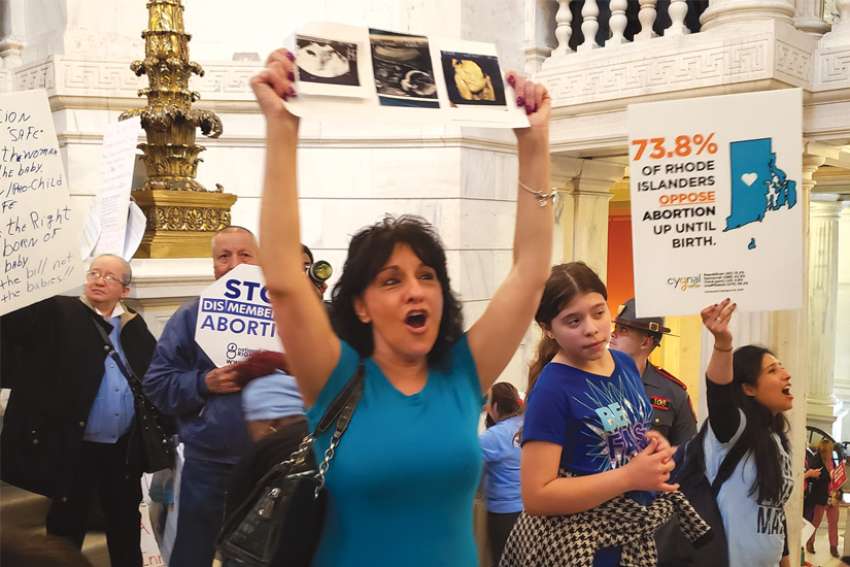In meetings with U.S. Vice President Mike Pence May 30 in Ottawa, Prime Minister Justin Trudeau brought up American “backsliding” on abortion.
“We will always defend women’s rights,” Trudeau said before the meeting with Pence. “I am very concerned about the conservative movement, which is beginning to take away the rights of women in the United States and elsewhere.”
Trudeau’s arguments delivered behind closed doors didn’t change Pence’s mind.
“Let me be clear, I’m very proud to be part of a pro-life administration and our administration has taken steps to stand for the sanctity of life at home and abroad,” Pence said after the meeting.
“It doesn’t surprise me from the prime minister (of Canada),” said the associate director of the United States Secretariat of Pro-Life Activities Greg Schleppenbach. “I am quite confident that Vice President Mike Pence will hold his own in defending the very good work that is happening in this country to right this gross injustice of abortion.”
Schleppenbach makes no apology for how the often bitter and legally-focused abortion debate in the United States can set the tone for the pro-life movement in other countries. “Is it something that we or the U.S. is exporting? Perhaps, to the extent that we’re trying to promote life around the world — you bet,” he said.
But as far as the Catholic pro-life movement in the U.S. is concerned, there’s more to the American debate than headline-grabbing rhetoric, said Secretariat of Pro-Life Activities communications director Kat Talalas.
“What we are trying to share with the world is greater opportunity for women to lovingly care for their children and bring them into the world,” she said.
When the pro-life movement is characterized by opponents as a mean-spirited, attempt to control women, that’s based on a very narrow understanding of what pro-lifers are asking for, said Talalas.
“The debate on abortion has always been contentious,” she said. “I think certainly the mediums we use to communicate — in sound bites with less nuance — contribute to polarization.”
The U.S. pro-life movement focuses on the laws that either allow or prohibit abortion because abortion is an issue of justice and civil rights, said Schleppenbach.
“To speak of the current debate going on in this country highlights one very obvious thing — that is, this is an issue that certainly was not settled by the Supreme Court’s ruling in 1973 in Roe v. Wade,” he said. “That speaks to the fact that abortion represents a gross injustice, a gross violation of civil rights and human rights for human beings in the womb.”


